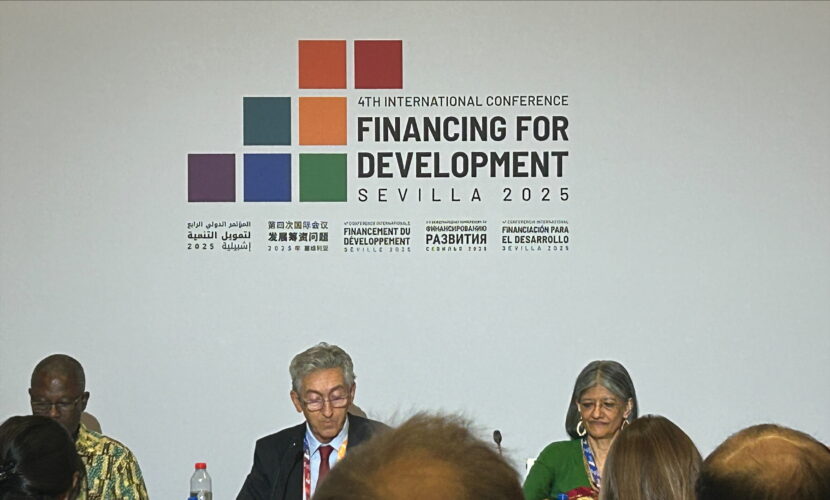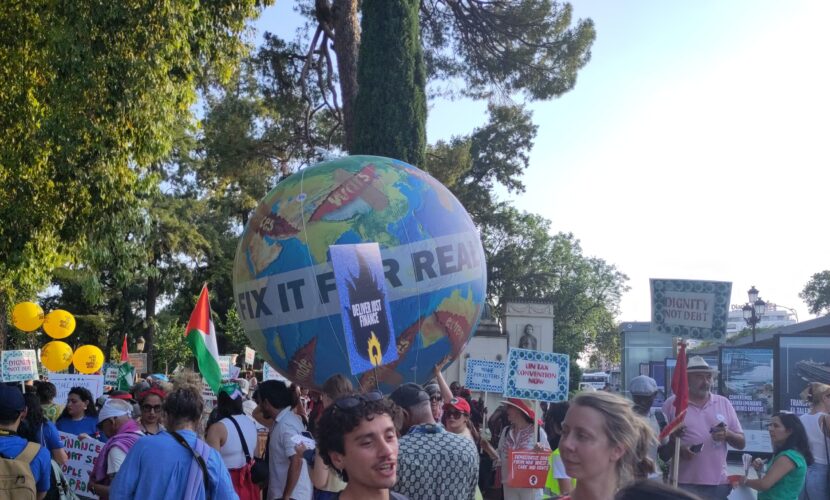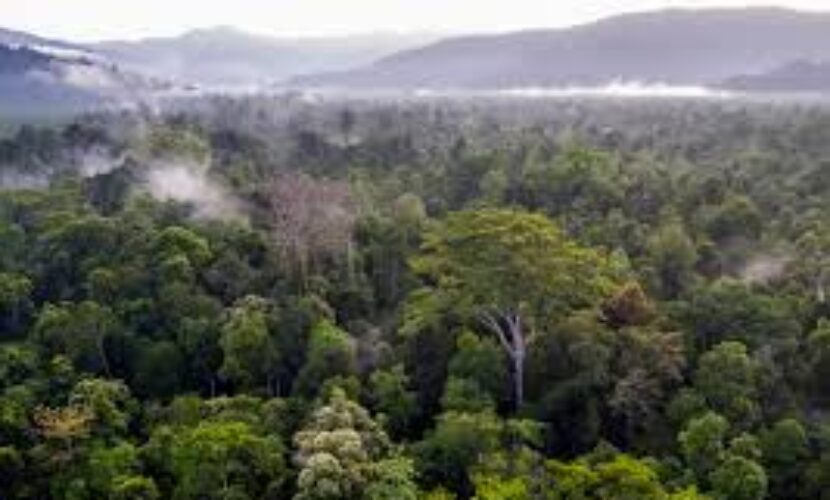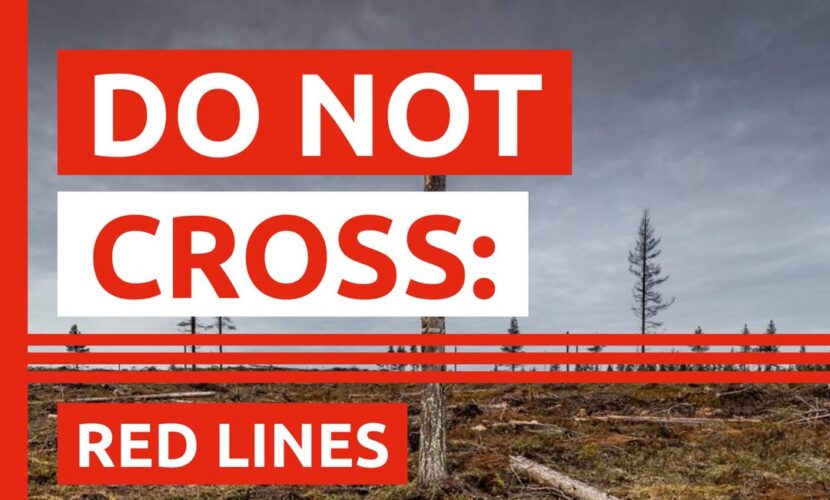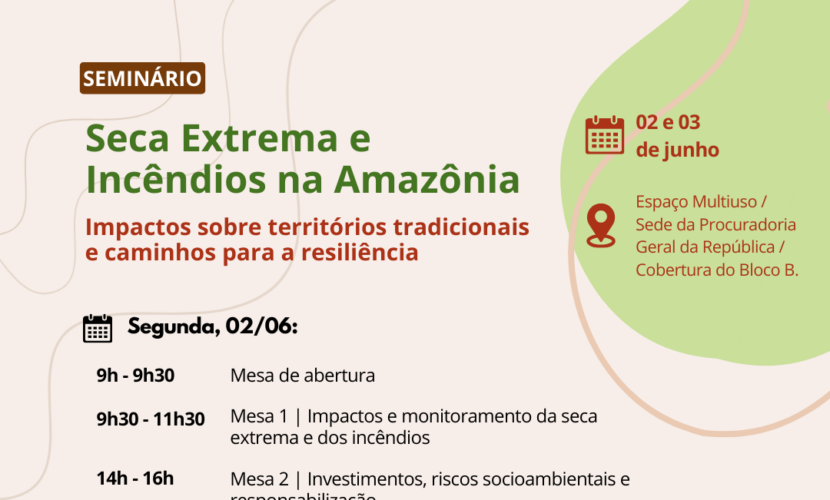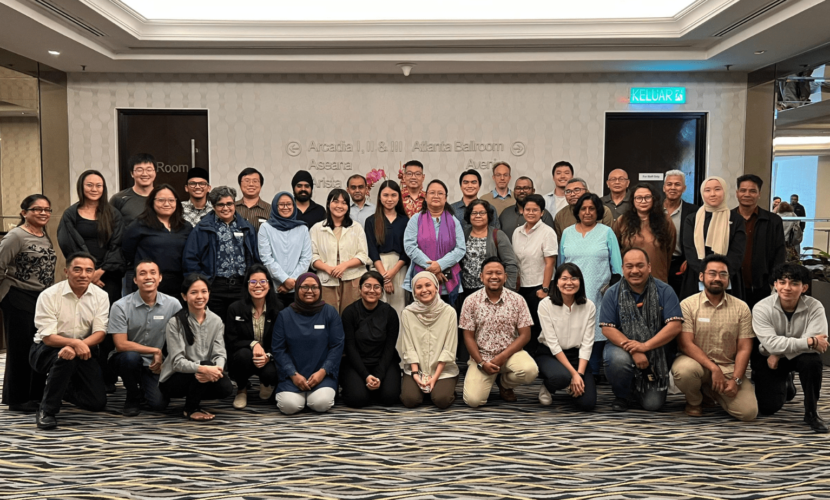Publications
IOI Group
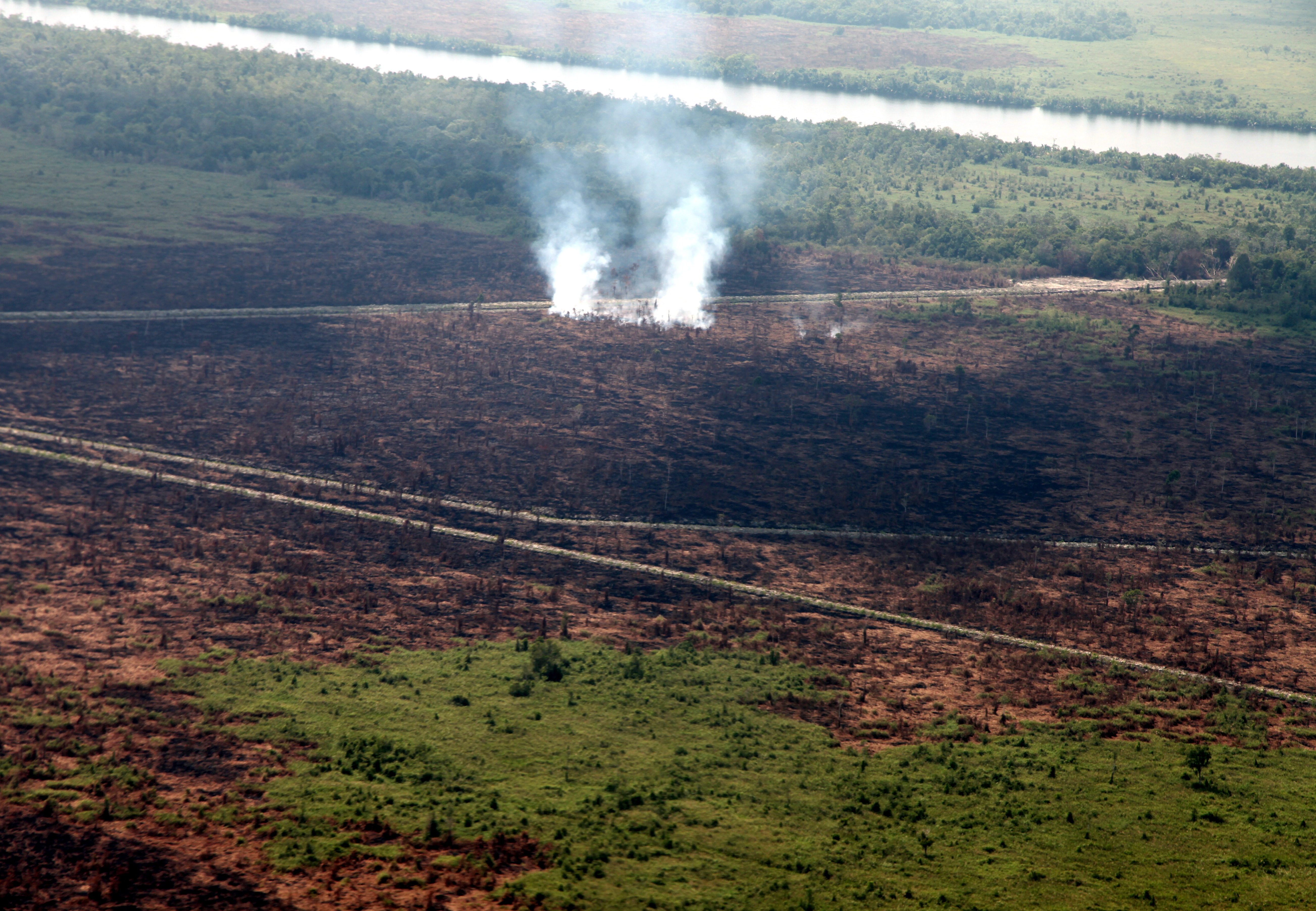
Client summary – IOI Group
IOI Group is one of Malaysia’s biggest corporations and a major producer and trader of palm oil with a revenue of USD 2.9 billion in 2015. IOI has failed to address many social and environmental risks in its supply chain. Recent evidence of IOI clearing forests, draining peatlands, operating without proper licenses and failing to prevent fires resulted in a four-month suspension from the RSPO in April 2016.[i] IOI Group’s recent introduction of a set of policies on human rights and the environment still lacks a time-bound implementation plan and a mechanism and deadline for achieving verified compliance. Oil palm plantations operated by the group, its joint ventures and independent suppliers to IOI’s processing facilities continue to operate in breach of this policy.
Major financiers of IOI Group (forest-sector adjusted)*
[Amcharts Id=”Chart-4″]
Major supply chain links
IOI’s suspension from the RSPO in April 2016 sent a signal to the marketplace and led over two dozen companies, many of which are RSPO members, to suspending purchases from IOI including Unilever, Mars, Hershey’s, Mondelez, General Mills, and the global palm oil traders Bunge and Cargill.
Community and worker rights violations
In January 2017, the indigenous community of Long Teran Kanan rejected an offer by IOI to resolve a long-standing conflict over land in Sarawak. The customary land of Long Teran Kanan and six other communities in the vicinity was taken by an IOI controlled plantation company (IOI Pelita Plantations) without the community’s free, prior or informed consent (FPIC) or remedy, resulting in ongoing land conflicts.[ii] At least 4 of the 7 communities involved in the mediated meetings with IOI have rejected the mediation process and stated IOI is not fulfilling the RSPO conditions set for mediation. It is expected that the majority of other villages involved in the negotiations will shortly follow suit.
Long Teran Kanan community representatives and a supporting NGO called Grassroots filed the complaint to the Roundtable on Sustainable Palm Oil (RSPO) in 2010. Both parties have notified the RSPO of the communities recent rejection of IOI’s offer. The RSPO and IOI have yet to publicly recognize the decision.
IOI was also linked to worker rights violations in 2014 – field investigations of IOI’s plantations in Johor state in Peninsular Malaysia reported a wide range of human and labor rights issues and violations, including indicators of forced labor [iii].
Use of fire
In December 2015, active fires were detected in PT Bumi Sawit Sejahtera BSS’s High Conservation Value (HCV) area – destroying peat forest and habitat for orangutans, sunbears, proboscis monkey and other endangered species.[iv] Use of fire to clear land is illegal in Indonesia.
Rainforest and peatland destruction
IOI’s subsidiaries have been found to operate without necessary permits, clear deep peat and other HCV areas, make fraudulent statements, and other procedural violations in its palm oil plantations.[v] Greenpeace field investigations in early 2016 found that an IOI subsidiary had illegally drained and developed peatland concessions in West Kalimantan despite sanctions and a government ban on peatland development.[vi]
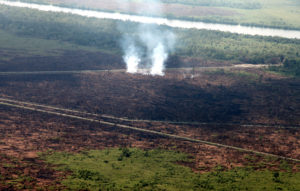
Photo: Forest clearance on PT BSS concession, 2013
Source: AidEnvironment
Footnotes
[ii] Forest People’s Programme, 2015
*Companies with diversified interests had identified financial totals reduced to more accurately capture the proportion of financing that can be reasonably attributed to the forest-risk sector production or primary processing operations of the selected company. Where available financial information did not specify the purpose of investment or receiving division within the parent company group, reduction factors were individually calculated by comparing a company’s forestry assets relative to its parent group total assets.

